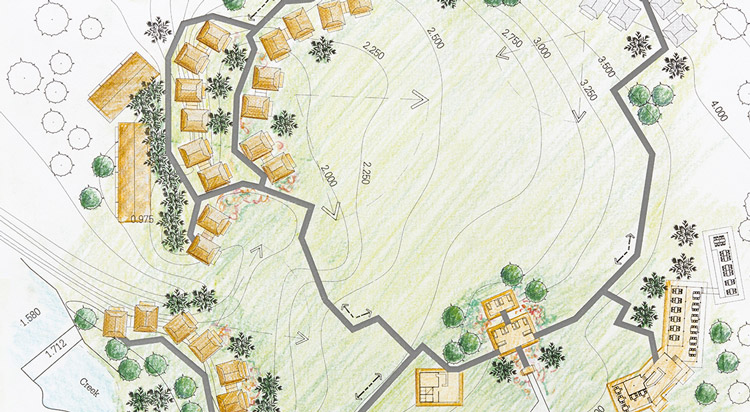

Partitioning Land: When Owners Don’t Agree
By Nicole L. Voigt, Esq., Attorney at Law
When is Partition Required?
Partition actions divide land between owners based upon principals of fairness and are necessary when co-owners cannot agree. Imagine your neighbor and her two siblings inherit a small farm. Your neighbor has always dreamed of keeping the family farm, but neither her brother nor sister has any interest, and would rather sell the farm and collect the profits. Your neighbor can’t afford to buy them out at their demanded price, which she disputes. After numerous fruitless discussions, they are officially at an impasse and do not know what to do. In situations like this, the law provides for a means of resolution called a partition action. Partition literally means to divide into parts, so it follows that a partition action divides the property among its owners. However, not all situations involving division can be resolved in the same way, which is why there are two fundamental types of partitions: partition in kind and partition by sale.
Partition in Kind versus Partition by Sale
A partition in kind divides the property into one or more lots which are distributed amongst the owners. Each owner then owns his or her respective, newly created lot. For example, a 15-acre undeveloped plot owned equally by three people may be severed into three discreet 5-acre lots. Partition in kind is favored by New Jersey courts, but it may not always be practicable. Additional factors may complicate partition actions. For example, division of preserved farmland requires an application and approval by the State Agricultural Development Committee. Applicable land use regulations should be understood as well, including confirming the availability of the exemption for subdivision by court order.
A partition by sale occurs when a court decides that the property should be sold and the proceeds divided amongst the co-owners. Most commonly this occurs when one party is refusing sale, yet the party cannot afford to buy out co-owners. Often, the property is not suitable for subdivision, or debts related to the property or estate cannot be satisfied without sale. A partition by sale is typically sought by one owner over the objection of others. Consider the example we began with of three siblings inheriting a farm. A partition in kind is not a good solution because it is simply not practicable to divide the barn and chicken coop into three equal parts. Additionally, some co-owners may not want the farm, and demand that they obtain their fair market share of the property.
Partition Requires a Court Filing
If the co-owners cannot agree, any one owner may file an action seeking partition by sale. In either type of partition action, if a partition is granted, the court will determine how the property itself or the profits from its sale should be split amongst the co-owners. To do this, the court will need to consider, among other things, how the property is owned, appraised value, investments made, and fairness. Evidentiary procedures must be followed, and a commissioner may be appointed to review facts. Ongoing negotiations often occur during the course of the litigation.
A person seeking partition of land will be well-served to retain legal counsel to ensure their interests are adequately represented. Attorney Nicole L. Voigt is experienced in estates and property disputes, including partition actions, and will provide customized advice based upon your unique circumstances.
THE INFORMATION CONTAINED HEREIN IS GENERAL INFORMATION, IS NOT LEGAL ADVICE, AND DOES NOT CREATE AN ATTORNEY-CLIENT RELATIONSHIP. YOUR SPECIFIC FACTS AND CIRCUMSTANCES MUST BE CAREFULLY REVIEWED WITH A RETAINED ATTORNEY PRIOR TO REACHING LEGAL CONCLUSIONS.
You may contact Nicole at (908)801-5434 or info@nlvlegal.com. For more information, visit www.voigtlawoffice.com.




